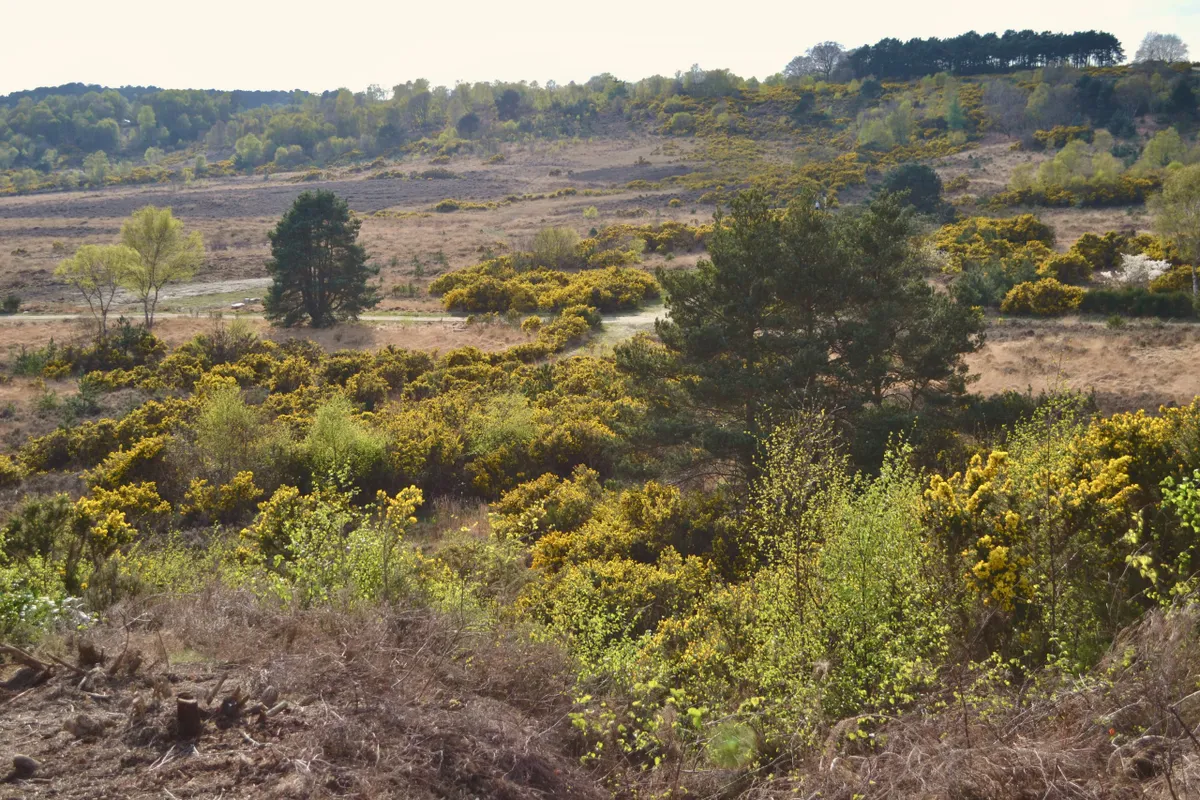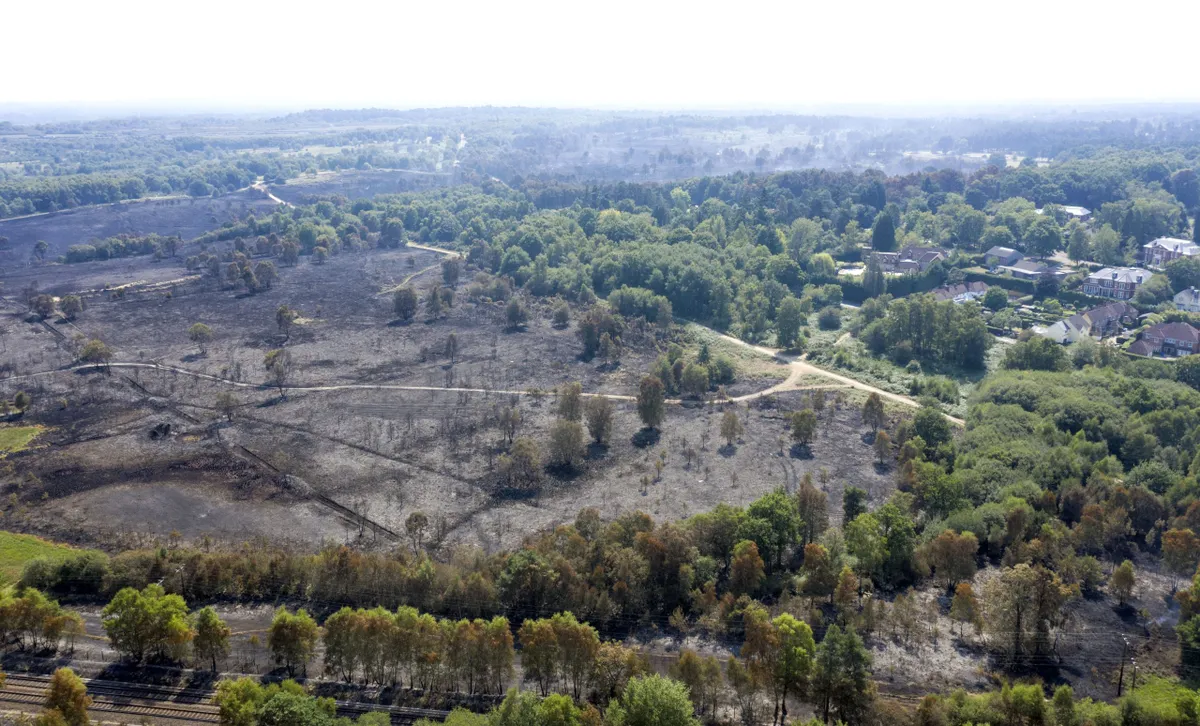The fire broke out on Chobham Common in Surrey last Friday and firefighters spent much of the weekend bringing it under control. As of Tuesday, small pockets of isolated fires were still needing attention as they reignited in the heat. More than 40 vehicles including fire engines, specialist units and 4x4s have been deployed.
The common is home to all six native species of reptiles - adders, grass snakes, smooth snakes, common lizards, sand lizards and slow worms – while the RSPB says that more than 100 different species of birds had been recorded on the site including the Dartford warbler, hobby, buzzard, woodlark and woodcock. Rare species, such as the nightjar, known as the ‘corpsehound’ for its eery dusk-time call, also nest on the heath during summer.
The heath has been described as ‘a link with our Stone Age past’ and is also a habitat for 29 species of butterfly, including the rare Silver-studded blue while 22 types of dragonfly which hover and dart above the heathland pools. More than 100 species of wildflower have been recorded, including the sweeping spectacle of purple flowering heather, several species of native orchids and the wetlands’ insect-eating Sundews and rare Marsh gentians. Chobham Common is also one of the best British sites for insects, spiders, ladybirds, bees and wasps. There are also 25 species of mammal here, including deer. Cattle were moved away from the fire.

The cause of the wildfire has not been confirmed but the local fire brigade and the Surrey Wildlife Trusts point to both the extreme heat and the use of barbecues on the heath. Surrey County Council has asked visitors not to start "unnecessary fires" including lighting bonfires or using disposable BBQs in the countryside. The wildlife trust reinforced this message and called for no cigarettes, campfires or littering.
The wildfire took hold on Friday 7th August on Sunningdale golf course and, due to strong winds, jumped the Chobham Road and spread to Chobham Common. Firebreaks, previously put in place by the wildlife trust, helped to contain the fire and protect the remaining 500 hectares of the Common. Several dozen houses were evacuated around the periphery of the Common.

‘Wildfires are unpredictable, dangerous and particularly damaging to precious habitat, which has taken years of management to get into optimum condition for reptiles,’ said James Adler, Director of Biodiversity at Surrey Wildlife Trust‘. When these habitats are destroyed by wildfire, it may take many years before the area becomes suitable for them again.
All Surrey heathland sites are highly vulnerable to heath fires at present. We are very concerned that climate change is leading to an increase in frequency of wildfires, which present a danger to human life, people’s homes as well as wildlife.’
The fire is the second outbreak in 18 months at the common. In March 2019 the common suffered another fire which required 40 firefighters to bring it under control. That fire was not thought to be deliberate.

